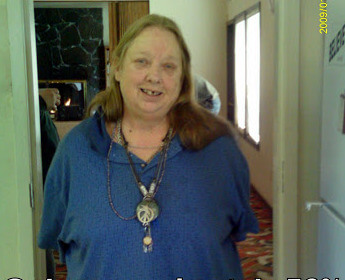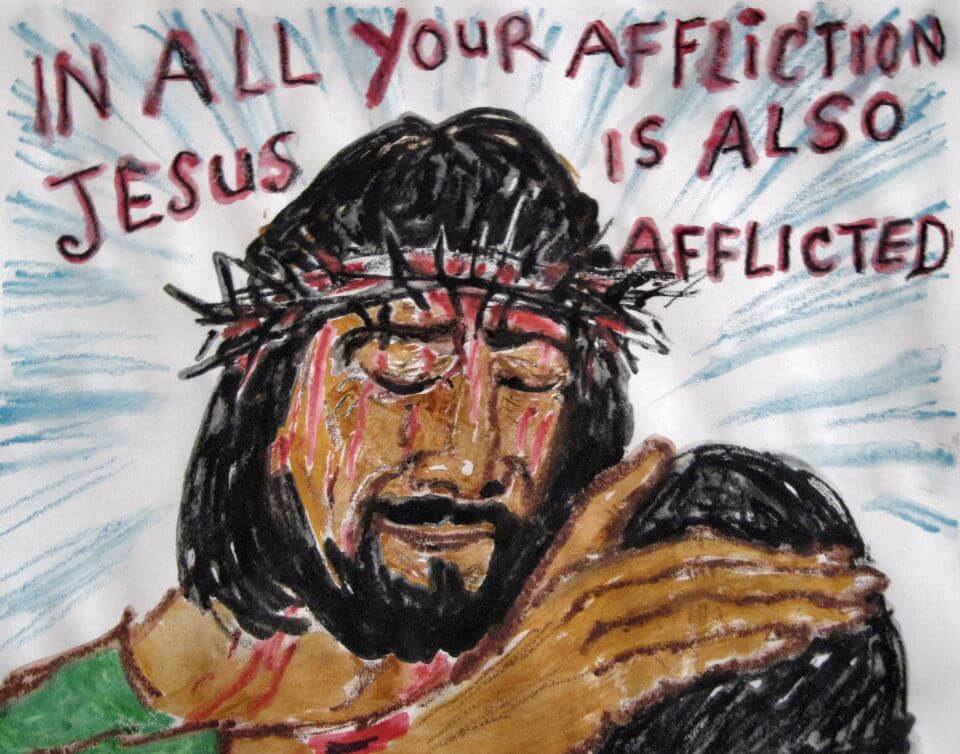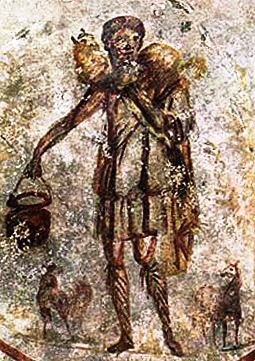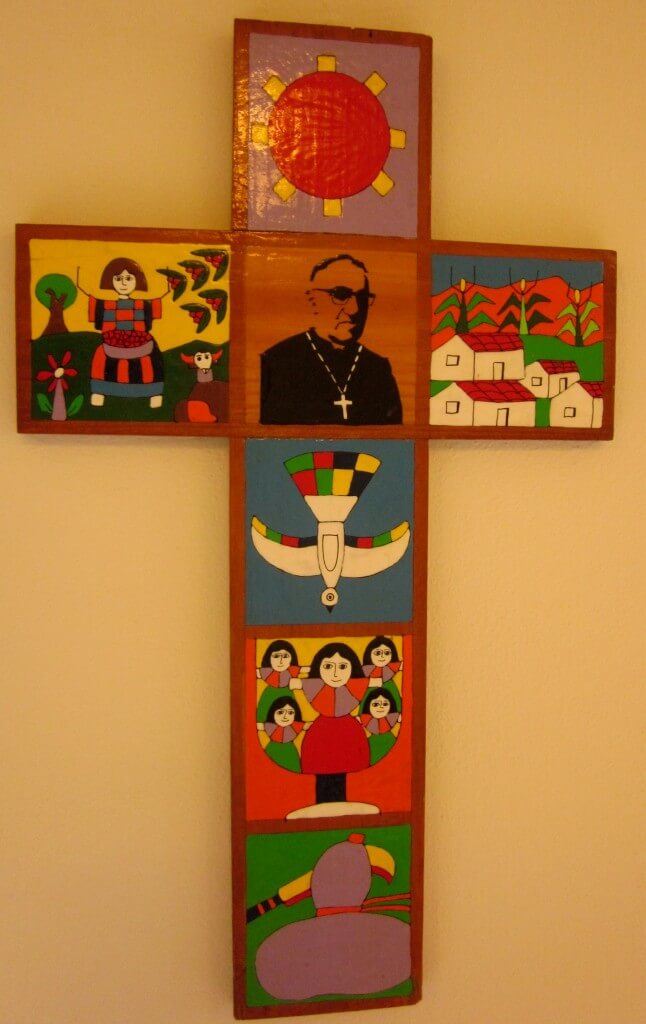-
A New Economy
 It was the time of the Feast of the Exodus and Jesus knew that his time on earth was short, and he was soon to go to the Father. Yet, he loved his disciples on the earth, and he never stopped loving them, even to the end. At the time of the Feast, the Great Liar already convinced Judas Iscariot to hand Jesus over to the authorities. Jesus knew that the Father had granted him authority over all things, and that his purpose was to come from God and to return to Him.
It was the time of the Feast of the Exodus and Jesus knew that his time on earth was short, and he was soon to go to the Father. Yet, he loved his disciples on the earth, and he never stopped loving them, even to the end. At the time of the Feast, the Great Liar already convinced Judas Iscariot to hand Jesus over to the authorities. Jesus knew that the Father had granted him authority over all things, and that his purpose was to come from God and to return to Him.
Given all this, Jesus got up from the meal, set aside his dress coat and put on an apron. Jesus asked all of the disciples if they wanted anything as a refreshment, filling their wine cups. Then Jesus took a basin, filled it with water and washed all the disciple’s feet, wiping them dry with his apron.
As he came to Simon the Rock, Simon asked, “Do you think you’re going to wash my feet?” Jesus responded, “You don’t get it now, but you will understand later.” Simon the Rock said, “No. You will NOT wash my feet. It’s too humiliating. I won’t let you.” Jesus calmly said, “If you do not allow me to wash your feet then walk out and don’t come back. If you want to be of my nation, then you must allow this.” Simon said, “Well, then wash all of me—my hands are pretty filthy and I haven’t washed my hair for a while…” Jesus interrupted him, “You are already completely clean, because your commitment to me cleanses you. If you’ve taken a bath, you just need your feet washed, not your whole body. Yet your whole is not clean.” When Jesus said this last bit, he was referring to the Betrayer, who was still there in the room with them.
After all their feet had been washed, Jesus took off the apron, put on his dress coat, and stood in front of them. “Do you understand what I have done? You call me ‘Teacher’ and ‘Master’, which is good, because that’s who I am. So if you see your Master being hospitable to you, then you must do so to each other. I gave you this example, so that you would act in this way. You are not greater than I—I am the one who sent you. It is good if you know what I teach you, but it is better if you do it—if you do what I do. Mind you, I am not talking to all of you. I have chosen you, but one of you was chosen to fulfill the Scripture, ‘He who receives my hospitality has slapped me in the face.’ I tell you this ahead of time so you will understand when it happens. Listen carefully—whoever welcomes into his home one of my workers actually receives me. And whoever receives me welcomes God who sent me to earth.
Foot Washing
In many Mennonite traditions, it is common to take Jesus’ command to wash each other’s feet as a sacrament. Thus, in many churches in the celebration of the week of Passion, they have a ceremony in which the church member’s feet are washed by each other. What happens is really quite surprising. We are often shocked at our reserve, at our measure of politeness.
Many of all—perhaps all of us, at first—take on the reaction of Peter—“You won’t wash MY feet.” We like to think that it is because our feet are dirty, filthy, undeserving to be touched. But I think, if we explore our feelings more carefully, we find that there are one of two real reasons for our hesitance. First of all, we find the touch of our bare feet to be intimate—too intimate. We are allowing someone who is fundamentally a stranger touch us in a sensitive and personal place. The second reason is because we are exposing a hidden part of ourselves to people. We are allowing people to see that which should not be seen. Opening ourselves up to the air what had been safely hidden. What we are really feeling is the shame of nakedness.
Now the fact of the matter is that when Jesus got up, wrapped a cloth around himself and washed the disciples feet, he was not proclaiming a new sacrament. We no longer do the daily practice of foot washing and so we do not understand the context in which it was placed, as the disciples did. Foot washing was done for the guest, as they came to stay at one’s house. Even as today, when we have a guest, we might offer them something to drink, even so the host of the ancient world offered to have the guest’s feet washed. It was the first part of a whole ritual of hospitality that included drink and food and possibly spending the night.
But although there was much ritual surrounding it, hospitality fulfilled a real need. To offer a drink in the ancient world was no empty ritual like we have, for usually we offer a drink to those who are not thirsty. Rather, the ritual of hospitality is given to one who has traveled, by foot, a long distance. Perhaps only as short as a mile, but often it is a long journey of a day or two, during which water is scarce and food more so. To travel was to endanger oneself, for bandits roamed the countryside and there was little security, and therefore little sleep. To offer hospitality, then, is to offer drink to the thirsty, food to the hungry and a safe place to sleep to those who are exhausted. Foot washing is the first part of this, for it cleans the dirt off the road, and makes one more comfortable, not just personally, but also taking away the anxiety of the traveler that he might be dirtying one’s home.
Hospitality
Thus, when Jesus was commanding his disciples to wash each other’s feet, he was telling them to practice the whole of the hospitality ritual to each other, not just a part of it. It was Jesus’ plan that many of his disciples would be travelers—itinerant evangelists—who would need to have many stations throughout the world, in need of hospitality. Thus, he is commanding his disciples, not to wash feet, but to meet the needs of the disciples. It is the introduction of the command he gives a number of times in a number of ways in the following chapters: “Love one another”, “Greater love has no man than this than to lay down his life for his friends.” A part of this love, John insists (especially in his letter—I John 3:17) is to offer hospitality. Food, drink, a place to stay and possibly clothing to those in need. It is a command to be a social network for disciples of all shapes, colors and creeds.
This is a command that Jesus gave many other times. “If anyone is to give even a cup of cold water to even the least of these because he is my disciple he shall not lose his reward.” “If anyone offers hospitality to you, they offer it to me.” “In as much as you have done so to the least of my brothers, you have done it to me.” To be hospitable to believers isn’t a nice idea, it is a foundational moral command of the church.
Beneath Notice
Another thing to notice is that Jesus washed the feet himself. This is a unique feature, and the one that Peter most noticed. When a host offered to wash a guest’s feet, he did not do this act himself. Rather, he had a servant do the washing. Thus, there is no discomfort as to having one’s feet washed by a peer, or (God forbid) one greater than one. Rather, it is done by a negligible one—a person beneath one’s notice.
However, Jesus, in this scenario, placed himself in the servant’s role. Yet the disciples could not pretend that Jesus was beneath notice, to be ignored. Peter finally couldn’t accept the contradiction between how Jesus was acting and who he was, and so he spoke up. But it was imperative for Jesus to be the servant. In this way, the disciples could also take on that role. It is not enough to say that a Christian could take on any role, no matter how lowly, no matter how marginal it made one.
Rather, Jesus command is for all of us to do the menial tasks, the servant place. It is a part of our participation in the Christian community. This is why Jesus said that leaders must act like servants—they must do the menial tasks, the tasks that made them lowly. (Luke 22; Mark 8). They must lower themselves to be the servants, even as Jesus did. Not a single Christian leader, or Christian member or Christian teen or Christian pew-warmer can escape from Jesus command of service. We must be the lowly to the lowly. We must offer help to those in need, where they are, where we find them. And we must make ourselves as less important than they.
Mutual Dependance
One last thing that Jesus emphasized. When Peter complained to Jesus that he would not receive the foot washing—that he would not participate in the demeaning of Jesus—Jesus responded with a stern rebuke. He said that if Peter wanted to be a part of Him, a part of His community, then not only did he have to serve, but he had to be served.
Often we think of ourselves as undeserving of help. But, more often than not, we think of ourselves as too independent to help. We have been raised in a society in which independence is most significant. If we are in need, we ought not to ask, we ought not to receive, for it is a wrong for us to put other’s out, to make them help us.
Jesus thinks of service in a different way. When we are in need, we are providing an opportunity for others in the church to be like Jesus. We are providing an opportunity for service, for community to build, for us to be dependent on each other. And frankly, it is this last that our society loathes, that we all secretly hate. We cringe at the thought of being dependent on others, to rely on others for help. But the fact is, that is exactly what Jesus is creating with this example, with this physical parable. Jesus is creating a community of mutual dependence. We are to lean on each other, and give to each other. We should be dependable in our dependence on each other. We help each other’s needs and we give to each other’s needs. We love and are loved. We give and receive. And so we are the people Jesus commanded us to be.
-
Power to the People!
 While Linda was on the street, she was always called “Mom,” especially by the young street kids. She was a grandmother who adores little ones, but don’t get in her way. She’ll tell you what she thinks of you without hesitation, and she’ll keep all the young ones in line. The police thought that she was a bad influence on the street folks, but church leaders disagreed. They invited her and others to organizational meetings. And while she was still living on the street, she was invited to steer a central program for the homeless in Gresham: the day shelter program.
While Linda was on the street, she was always called “Mom,” especially by the young street kids. She was a grandmother who adores little ones, but don’t get in her way. She’ll tell you what she thinks of you without hesitation, and she’ll keep all the young ones in line. The police thought that she was a bad influence on the street folks, but church leaders disagreed. They invited her and others to organizational meetings. And while she was still living on the street, she was invited to steer a central program for the homeless in Gresham: the day shelter program.
This program proved successful and now day shelters are open six days a week in four different church facilities in Gresham, which is a significant stepping stone for the homeless to get the help they need both for daily survival and for getting off the street. Eventually Linda got off the street herself, but she continues to host day shelters five days a week.
No matter how much we love the poor or identify with the poor, we will never understand what it means to be chronically poor unless we have lived it over the long term, with no other options. We can imagine what it would be like, but there is always a divide, a mental disconnect. We will always say to ourselves about a certain group of the poor, “Why don’t they just…” Some of us will be too harsh, others of us will be too easy. In the end, only those who lived under conditions of chronic poverty can understand what it means.
This doesn’t mean that the other classes aren’t necessary to meet the needs of the poor. The poor need the literacy and organization skills of the middle class. The poor need the wealth and support of the upper class. But the middle class and the upper class cannot meet the needs of the poor alone.
When God determined His perfect plan to save the world, the Savior of all mankind had to be human himself. He couldn’t just reach out from above and save humanity, but rather he had to become human. And not just any kind of human, but a human born into oppression, choosing poverty and a stressful ministry instead of an easy life. Paul says, “He made himself poor so that we may be made rich.”* In God’s infinite wisdom, He knew that it was not enough for us to become rich—He needed to be among the poor.
Even so, we cannot help the poor, but we must put the poor in such a place so that the poor might help themselves. Some of us, like Jesus, will become poor so as a community of the poor we can help each other. But some poor, like the Gerasene demoniac, like Ruth, like Jephthah, like all the children of Israel in Egypt will be chosen to be God’s testimony to the world because they are poor.* And it is our responsibility to support them and to indicate God’s choice.
Ways to empower the poor to support each other:
 If anyone asks to serve, find a place for them
If anyone asks to serve, find a place for them
When a person comes up to me and asks me if I need any help, often my first internal response is, “I can do it better and faster by myself.” But I remember then that serving others is a basic need for all of us to live out. So then I find something for them to do, even if it is small, even if I could have done it better. In our ministries, if someone is willing to serve, we should try to find a place for them to serve (no matter how incapable they are, or inconvenient it is).
Give the poor leadership in the ministries for them
It should be the goal of every ministry to not only be for the poor, but to be of the poor. In the ministries that are established, find people who can support and lead the ministries and ask them if they would be willing to help run it. This is not only for their sakes, but for the benefit of the ministry as a whole. If you can find the leaders of the poor to help run your ministry, then you will find it is more of a community, and less of an “us and them” outreach.
Create councils of the poor to determine their own needs and solutions
Once a year, we invite our local homeless to speak to their own needs within the region. The only speakers are the homeless (or former homeless) in the region, and they give the organizations who want to serve the homeless a mandate of what the organizations should have as goals. That is one of many ways groups of the poor can speak to how ministries work and help the poor. Every group that helps the poor—whether a security group or an outreach group—should have at least a representative of the poor helping to guide the decisions. Unless the poor are involved, we don’t know how to help them properly
Put poor people on your church council
On your general church council, not just your benevolence/ministry group, have a church member be on your board at all time. A board will make decisions based on who they know within the church. If the church board does not have the poor represented, then they will unknowingly exclude the poor with their decisions. If a poor person is there to help make decisions, then all the social classes of the church can assist with the decision making process.
*I Corinthians 8:9
**Mark 5:18-19, Judges 11
-
…And Now a Word from Our Sponsor: Spiritually Ministering to the Poor
 Years ago there was a group of churches, all of whom had food ministries to the poor of one sort or another, and we were discussing how to do our ministries better. The question came up: how can we minister to the poor who come to us? They aren’t looking to the church to be delivered from sin or death, necessarily, but they would like us to help fill their bellies and the bellies of their children. How do we make the leap from meeting physical needs to meeting spiritual ones?
Years ago there was a group of churches, all of whom had food ministries to the poor of one sort or another, and we were discussing how to do our ministries better. The question came up: how can we minister to the poor who come to us? They aren’t looking to the church to be delivered from sin or death, necessarily, but they would like us to help fill their bellies and the bellies of their children. How do we make the leap from meeting physical needs to meeting spiritual ones?
We bounced about different ideas, but nothing practical or reasonable came about. Usually it is administrative staff or those who have a heart for meeting physical needs that are caring for the poor, and these aren’t the folks who are gifted with the ability to counsel. They could give people a piece of paper, inviting them to church, but as we have seen in a previous article, that doesn’t usually meet the needs of the poor. The staff person could refer a person to a pastor or prayer partner, but frankly, the poor person probably won’t contact anyone. When a person is faced with a severe crisis, most of the time they don’t take the time to contact strictly spiritual counselors.
As is often the case, when dealing with ministry questions we can turn to Jesus for the answers. Funny how that works out, huh?
What did Jesus do with every poor person that he met up with? He may have given them some teaching, or words of wisdom. He might feed them or help them in some other way. But every single one he prayed for. He would pray for healing, pray for deliverance, pray for resurrection, even. And prayer is the easiest, most powerful act we can do for anyone.
I note that for myself it is often easier to give someone a can of food or a phone number than it is to remember to pray for the one in need. I’m a pastor, I’m supposed to remember these things. But as a member of a materialistic society, it is easier to think of “real” things than spiritual ones. Of course, God is more real and can offer better help than our local social services or government. And we don’t have to fill out a form or show our ID to get God’s help. All we have to do is ask.
And if we have difficulty remembering this, how much more our poor friends who are faced with back rent, utilities, children to feed or a hole in their tent. They think that the quickest, more direct solution to their problem is to ask for the money or physical thing they need. Prayer seems like a distraction.
What we can do is not try to convince them that prayer is important. Rather, we just invite them to pray. We don’t need to change their belief, we need to show them that we care enough to bring their needs to the Lord of the universe. If we invite them to pray, spending time in prayer is their choice. I am so surprised at how many people come back to me after I pray with them but did nothing else, and mention how much the prayer helped them. I hear ‘thank yous’ for prayer much more than for blankets.
Here is the basic ministry every follower of Jesus can (and should) offer a needy person:
We should ask, as Jesus did, “What do you need?” And more often than not, they will tell their story. We don’t have to correct their presuppositions or pity them. All we have to do is listen and understand. Having someone really understand your problems is the first step of healing.
Pray
If we just ask if they are willing to have us pray, 99 percent of all people will be willing to have us pray. And 90 percent will be happy to have us do it. To pray for them means we heard, we agree they have a need and, more than that, it communicates that we think God will meet their need. But the most important thing is that prayer opens the opportunity for God to directly minister to them and to build up their faith. If we pray, and the prayer is answered, then they will thank God and give Him credit. If we don’t pray, God may act, but He will not be glorified.
Help with what we can
We must take James’ warning to heed: If we bless the person in need, but do nothing to help their immediate need, we are faith without works: our spiritual life is dead. So after the prayer we see what we can do to meet the person’s need with what we have. We should not allow a person to hang up the phone or leave our facility without giving them some real help.
“Will not God bring about justice for His elect who cry to Him day and night, and will He delay long over them? I tell you that He will bring about justice for them quickly.” (Luke 18:7-8)
-
Welcoming Home
 Joan and Cliff walked in late to the worship service. Their clothes had holes, and who knows when the last time was Joan had brushed her pink-dyed hair? During the prayer service, Joan stood up and explained that she and Cliff were about to lose their housing and that they needed finances to help them through. After the service a few people welcomed them briefly, but as there was a board meeting, they were quickly left alone. They never came to the church again. What no one understood is that they weren’t actually there to ask for money, but they were looking for a church to get involved in. They ended up in a large church that they could get lost in.
Joan and Cliff walked in late to the worship service. Their clothes had holes, and who knows when the last time was Joan had brushed her pink-dyed hair? During the prayer service, Joan stood up and explained that she and Cliff were about to lose their housing and that they needed finances to help them through. After the service a few people welcomed them briefly, but as there was a board meeting, they were quickly left alone. They never came to the church again. What no one understood is that they weren’t actually there to ask for money, but they were looking for a church to get involved in. They ended up in a large church that they could get lost in.
Rob has been on the street for many years. When he first came to the church, he was smelling of alcohol, wore shabby clothes and interrupted the service, begging for someone to pray for him. The church was flexible, and stopped the order of worship in order for a group to lead the congregation to pray for Rob. The sermon was a little shorter, but no one minded. Rob came to the services for a few weeks and then he confessed to a member that he wouldn’t be coming back. “You guys are great,” he said, “but I’m not the same as you. I don’t belong here.” Although the member strongly disagreed, Rob didn’t come back.
Some of us might assume that Rob or Joan and Cliff just don’t belong in church. Or that they aren’t ready to make a real commitment to God. The fact is, they are as ready as any of us to be right with God. But connecting to a community of God’s people isn’t as easy as being welcoming. We need to be the right sort of culture, as well.
Everything we do has to do with culture, including our worship. How we sing (if we sing), the style of prayer, the order of service, the clothes our people usually dress in, the way the pews or chairs are arranged—all of this communicates our cultural viewpoint. And as we have said before, many of the poor have a different cultural viewpoint than their middle class counterparts. Many of the poor walk into a service and they can’t pinpoint what it is, even if the people are welcoming or happy to see them, there is something uncomfortable about the proceedings.
The answer Anawim came for this is to have a separate worship service for the homeless and mentally ill who otherwise wouldn’t come to church. We believe that the homeless should be able to worship the King who was homeless in a manner that the homeless feel comfortable. The mentally ill should worship the Lord who was called insane and demon-possessed, and be able to interrupt sermons with their immediate needs, even as Jesus allowed interruptions. The poor should be able to worship the One who gave up his riches to become poor. The outcast should worship the one who was forsaken by all.
We are attached to our cultural forms of worship, so we wonder why the poor should have a separate worship service. It is the same issue as our youth—why should they have a separate meeting? What about our local Hispanics or Vietnamese? They know English, why can’t we worship together? We recognize the cultural issues are different enough to not think twice about their own worship times. Even so, the poor have cultural issues that need to be addressed by the poor, or at least those who have the poor first in mind.
Some tips to creating a separate worship space for the poor:
Go to where the poor are
Go to a homeless shelter, a food bank, a day shelter or a free meal and hold your worship there. The closer you hold the worship to the benevolence service, then the more are likely to come. If there isn’t a service for the poor in your immediate area, use your facility to establish a meal and then bring worship into it, once the benevolence is established.
Worship liturgically but flexibly
The context of the worship should seem casual. Sit in a circle, on folding chairs that can be moved, or around tables. All involved in the worship should dress in shabby clothes—if someone wears a tie, ask them politely to take it off so the others won’t be uncomfortable J However, keep the worship pretty structured. Follow the same pattern of worship every week. (Our pattern is: Lord’s prayer, two songs, a long scripture reading, two songs, teaching, prayer from the congregation.) Within that pattern, give people the opportunity to share what God is doing or to ask for prayer requests. Allow others to share songs, or to read (or quote) Scripture. Keep music simple—we sing acapella or with a guitar only.
Don’t Give Up
At first it may seem that an opportunity to worship isn’t something people are interested in. Probably people are working on trusting you. Make sure folks understand that you are there for the long haul, and not just a short-term project.
Empowerment
Take recommendations of how the worship can be better. Give the poor an opportunity to lead a portion of the service, or to help structure the service. If the entire service ends us being led by the poor, all the better. If you want to integrate the worship into your “normal” worship, do it on terms the new congregation accepts and appreciates. You may be beginning the new church, but it is their church, and they should be comfortable in their own worship.
-
Not in MY Sanctuary!
 This blog was originally part of a series I wrote for Mustard Seed Association.
This blog was originally part of a series I wrote for Mustard Seed Association.
If you’ve been following along, I have been encouraging all churches, everywhere to minister to the poor. For many churches, but not all, this means inviting all kinds of people into their facility, of all faiths, and some with no real faith at all. Let me tell you, when we welcome anyone and everyone into our holy place of worship, we get some interesting situations.
Some, without thinking, have blasphemed God in our sanctuary.
Others have attempted some sexual activity in worship areas.
And there are a few who have shown no regard to church authority, yelling at them, cussing them out, even threatening to hit them.
This kind of activity is not the norm, but it happens. And some church members, when faced with this, are deeply offended and want to punish such offenders severely.
In a recent book by Jonathan Haidt*, a professor of political psychology, he lists out a number of ethical norms that all people share. There are a few, however, that he separated out because people look at these ethical standards so differently than others. A couple of these are the ethic of sanctity and the ethic of authority. To have a value of sanctity is to say that there are some places or actions that are holy in and of themselves. The value of authority is to say that authority is granted upon certain people, and this authority must be recognized and respected. However, there are many people in our world today that do not hold to an idea of a sacred space or sacred action, and they may mock or do distinctly unholy actions in a place we consider deserving of reverence. Also, there are many people who consider authority as something to be earned, not granted, and so an authority is one who acts as an authority ought to act and they will then deserve respect.
 It is interesting that Jesus seemed to take the idea of sacred space in a different way than most of us. The temple was a sacred space, but this meant that it needed to be open to the whole world. When the High Priest packed the Court of Women and Gentiles with money changers, Jesus drove them out, saying, “My house will be called a house of prayer for all the nations.”(Mark 11:17) It is holy for the sake of the whole world, not just those who have been set aside as sacred.
It is interesting that Jesus seemed to take the idea of sacred space in a different way than most of us. The temple was a sacred space, but this meant that it needed to be open to the whole world. When the High Priest packed the Court of Women and Gentiles with money changers, Jesus drove them out, saying, “My house will be called a house of prayer for all the nations.”(Mark 11:17) It is holy for the sake of the whole world, not just those who have been set aside as sacred.Jesus also held a different view of authority. While he didn’t disagree that a person could have authority handed down to them, the authorities that took on his name were not to take that authority for granted. The authorities appointed by Jesus are not to take on high titles, but instead are to act like servants to others, to be the most humble of all. ( Matthew 23:8-12; Luke 22:25-27)
The one most deserving of respect is God, the Creator and Father of all, Lord of Heaven and Earth. Yet this very God of gods grants respect to us all, by giving us the ability to make our own decisions and to hold authority on earth that is really His own. Even if we misuse His authority, He does not take it away from us. God asks for worship and praise, to thank Him for the never ending gifts He grants to us. Nevertheless, when some are ungrateful to Him, He never takes away the sustaining rain. When some speak of Him in an evil way, He never withholds his grace of food or life. Even to the most disrespectful and wicked He continually sustains. (Matthew 5:45; Luke 6:35-36)
Even so, we must welcome people to be respectful of our place and authority, but not punish those who do not give it. If we have offered food, assistance and love to all those who need it, then we should not take our ministry away because some have not offered respect. After all, we are the servants of Him who was despised by all so that He might save all, the one who taught us: “Blessed are you who are persecuted.” (I Peter 2:23; Matthew 5:11)
Some things to remember in our ministry to the poor:
Worship is to be offered, not demanded
Worship is a matter of the heart, not of action. We should never require worship as a payment for eating or other kinds of service. But we should always offer worship to the poor, giving them the opportunity to give thanks to the Giver of food and life.
Remind people of sacred space
We should not punish people for not respecting our sacred space, to take away the free gift of God because they disrespect the place where God dwells. Rather, we should gently remind people that the space they are in is holy and we should act with reverence, in as much as we are able (or remember).
Earn respect
The poor are constantly demanded of, and it doesn’t help them or your relationship with them to demand respect. To obtain respect from the poor, we must earn it. We must speak with gentleness, we must listen to them and understand their needs. We should go out of our way to meet their needs if we have the resources, and display sincere love for all. Then we will never have to ask for respect, because it will be given gladly.
*I highly recommend Jonathan Haidt’s book, The Righteous Mind: Why Good People Are Divided by Religion and Politics.
3733 N Williams Ave
Portland, OR 97227
503.888.4453
AnawimCC@gmail.com
Ministry Locations and Times »













